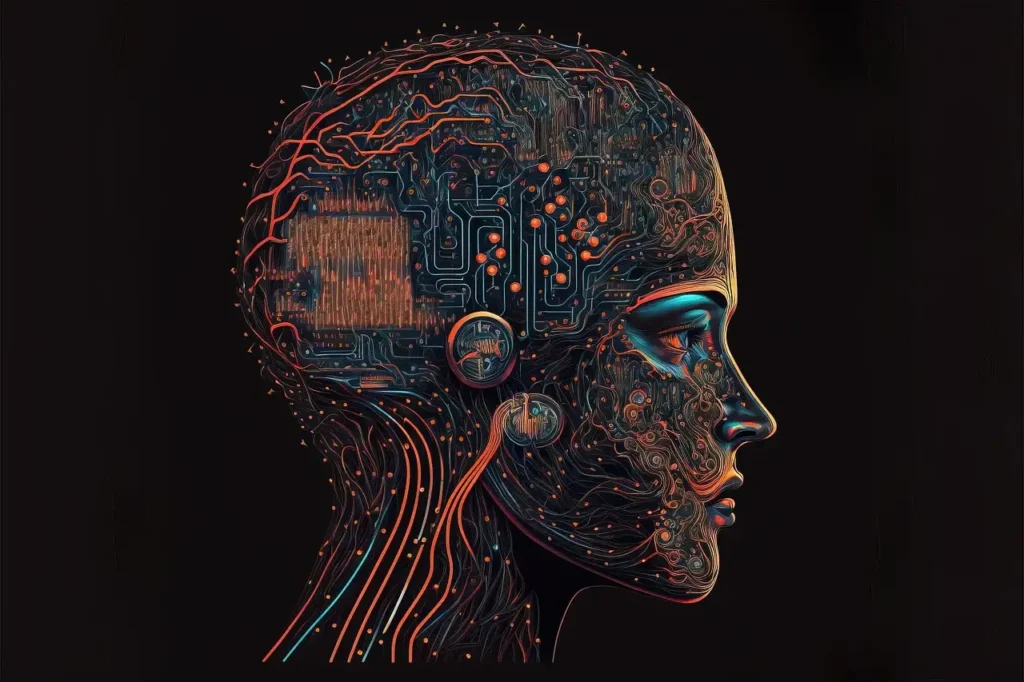Artificial intelligence (AI) is transforming industries across the globe, and SEO is no exception. With search engines becoming increasingly sophisticated, traditional optimization techniques are no longer enough to achieve top results. Today, SEO professionals must understand and leverage AI to remain competitive and create impactful strategies.
This blog post explores the growing influence of AI in modern SEO. We’ll cover the evolution of AI in search algorithms, discuss key technologies shaping SEO strategies, and provide practical tips for integrating AI tools into your workflow. Whether you’re a seasoned SEO professional or just starting out, this guide will help you stay ahead in a rapidly changing landscape.
The Evolution of AI in Search Algorithms
Search engines have come a long way from their keyword-ranking beginnings. AI has been at the forefront of this transformation. Major advancements, like Google’s RankBrain and BERT, have changed the way search engines understand and process content.
Milestones in AI-Driven Search
- 2000s – Basic Keyword Matching
Early search engines prioritized exact keyword matches, leading to keyword-stuffed, poorly written pages dominating results.
- 2015 – Introduction of RankBrain
Google’s RankBrain introduced machine learning, enabling the search engine to interpret queries in a more human-like manner.
- 2019 – BERT Update
With the BERT (Bidirectional Encoder Representations from Transformers) update, Google gained a better understanding of natural language, focusing on the context of words in a sentence.
- 2023 and Beyond
Google’s recent AI model advancements, such as MUM (Multitask Unified Model), can analyze images, text, and videos, understanding user intent on a deeper level.
These milestones illustrate how AI is shaping a more nuanced search experience. Now more than ever, SEO isn’t just about keywords—it’s about delivering meaningful, context-focused content.
Key AI Technologies Transforming SEO Strategies
AI introduces a suite of technologies that automate, enhance, and innovate how SEO professionals approach their work. Here are some of the most impactful:
1. Natural Language Processing (NLP)
AI-powered NLP tools help search engines understand the intent behind user queries. For example, NLP enables better semantic search, where engines comprehend the meaning rather than the literal keywords. Tools like Google’s Natural Language API allow SEOs to analyze their content and optimize for context.
2. Machine Learning Models
Machine learning drives recommendations for SERP rankings. These models analyze vast data sets to make predictions about what content best satisfies search intent. To gain insight into ranking factors, tools like SEMrush and Ahrefs incorporate machine learning into their data-driven keyword strategies.
3. AI-Generated Content and Tools
Platforms such as Jasper and Outwrite allow SEOs to generate engaging content faster. While not a replacement for human creativity, these tools provide a strong starting point for optimizing blog posts, meta descriptions, and social media.
4. Image and Voice Search Optimization
Search is no longer limited to text; AI-driven platforms now focus on visual and auditory user inputs. For example, Google Lens and smart assistants like Siri and Alexa rely on AI to identify and deliver relevant results for images and voice queries.
How AI Enhances User Experience and Content Relevance
Optimizing for AI isn’t just about pleasing search engines; it’s about improving the user’s online experience. AI-driven SEO provides value in the following areas:
1. Personalization
AI allows for personalized SERPs tailored to the user’s browsing history, preferences, and location. For instance, geo-targeted search results in local SEO campaigns use AI to hyper-personalize.
2. Content Optimization
Natural language models such as OpenAI’s GPT-4 can analyze which tone and style resonate best with audiences, helping SEOs refine their content strategy to meet specific user needs.
3. Predictive Search
Predictive search tools powered by AI, like Google’s autocomplete, anticipate user queries, speeding up searches and reducing bounce rates.
The Future of AI in SEO and What It Means for Professionals
SEO professionals must adapt to the changing digital landscape. Here are some emerging trends on the horizon:
- Multimodal Search
AI systems like Google MUM will enhance multimodal search capabilities, combining text, audio, and visual inputs for a comprehensive search experience.
- Visual Dominance
As platforms increasingly incorporate videos and images in SERPs, optimizing multimedia content will be essential.
- Real-Time Data Feeds
AI tools will provide live insights based on SERP behaviors, allowing organizations to make quicker adjustments.
Staying updated on these advancements will keep SEOs ahead of the curve.
Case Studies of AI-Driven SEO Success
Real-world examples demonstrate the power of AI in SEO strategies:
- Expedia
Expedia implemented AI-driven tools to analyze which destinations users were most likely to book. This improved their rankings for location-specific searches.
- HubSpot
The platform embraced AI for content generation and SERP analysis, increasing blog traffic by 20% in a single quarter.
- BuzzFeed
Using AI to optimize their viral content strategy, BuzzFeed enhanced audience engagement and social shares, making their posts more visible on Google.
Practical Tips for Integrating AI into Your SEO Strategy
Want to incorporate AI into your SEO workflows? Start with these actionable tips:
- Leverage AI-Powered SEO Tools
Platforms like SEMrush and Moz integrate AI to provide data on keyword trends, competitive analysis, and SERP predictions.
- Focus on Intent-Based Content
Use tools like Clearscope to ensure your content matches user search intent. AI can analyze top-ranking pages, providing you with a content gap analysis.
- Optimize for Structured Data
Implement schema markup to help search engines better understand your content.
- Analyze User Behavior
Deploy AI-powered analytics tools, such as Google Analytics and Hotjar, to track user engagement patterns and make data-informed decisions to refine your strategy.
- Experiment with AI Content Generators
Tools like Jasper or Writesonic can help brainstorm ideas, create meta descriptions, or rewrite content for improved readability.
Stay Ahead in the AI Revolution
AI is no longer a futuristic concept—it’s here, and it’s redefining how we approach SEO. Tools and technologies powered by artificial intelligence offer countless opportunities to streamline workflows, improve efficiency, and enhance results.
By leveraging AI, SEO professionals can create user-centric strategies that stand the test of time. If you’re ready to take your optimization game to the next level, start exploring AI tools today. The earlier you adopt this technology, the more prepared you’ll be for the future of search.

